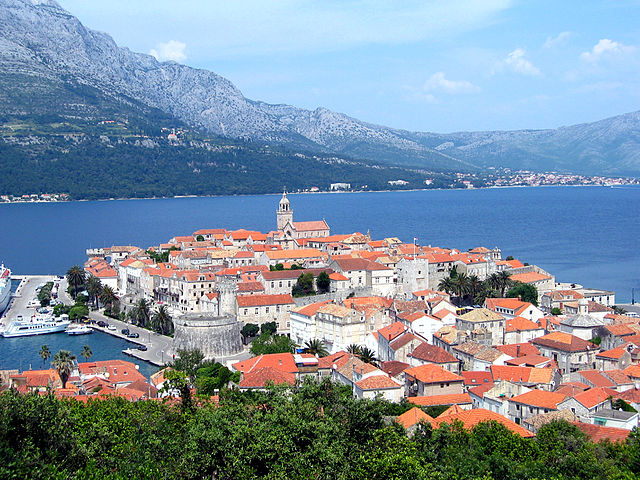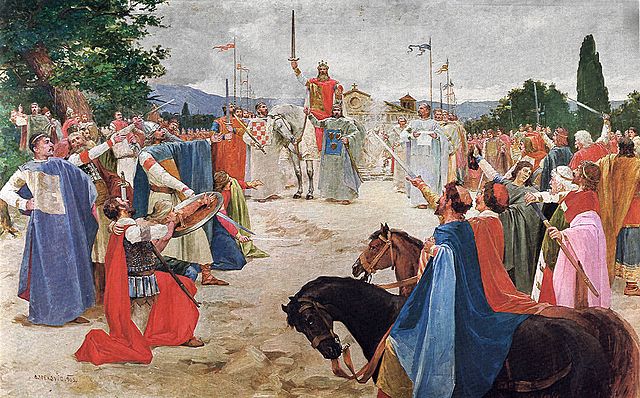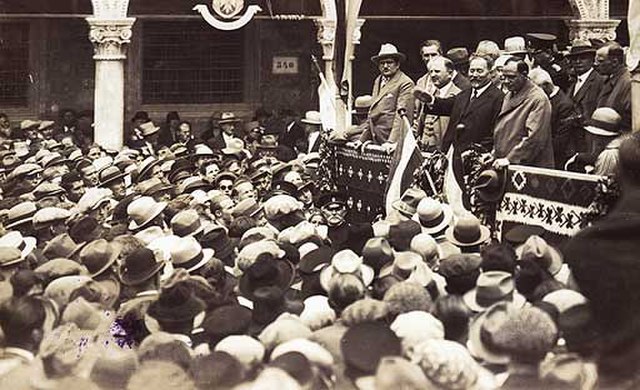Korčula is a Croatian island in the Adriatic Sea. It has an area of 279 km2 (108 sq mi), is 46.8 km (29.1 mi) long and on average 7.8 km (4.8 mi) wide, and lies just off the Dalmatian coast. Its 15,522 inhabitants (2011) make it the second most populous Adriatic island after Krk. The population are almost entirely ethnic Croats (95.74%). The island is twinned with Rothesay in Scotland. It is known for Grk, a white wine that is only produced here and not exported due to limited production.
Korčula (town)
South coast of Korčula
A panoramic view of the easternmost parts of Korčula, with Lumbarda, City of Korčula and Orebić (Pelješac) from left to right
Austrian KK stamp cancelled in Italian CURZOLA ca 1863
Croatia, officially the Republic of Croatia, is a country located at the crossroads of Central and Southeast Europe. Its coast lies entirely on the Adriatic Sea. Croatia borders Slovenia to the northwest, Hungary to the northeast, Serbia to the east, Bosnia and Herzegovina and Montenegro to the southeast, and shares a maritime border with Italy to the west. Its capital and largest city, Zagreb, forms one of the country's primary subdivisions, with twenty counties. Other major urban centers include Split, Rijeka and Osijek. The country spans 56,594 square kilometres, and has a population of nearly 3.9 million.
Coronation of King Tomislav by Oton Iveković
Ban Josip Jelačić at the opening of the first modern Croatian Parliament (Sabor), June 5, 1848. The Croatian tricolour flag can be seen in the background.
Mass protests in Zagreb against the unification of the State of Slovenes, Croats and Serbs with the Kingdom of Serbia in 1918.
Stjepan Radić, leader of the Croatian Peasant Party who advocated federal organisation of the Yugoslavia at the assembly in Dubrovnik, 1928. His death at the end of the same year as a result of an assassination in the National Assembly by NRS member, Serbian nationalist politician Puniša Račić, leads the country to a serious political crisis.








